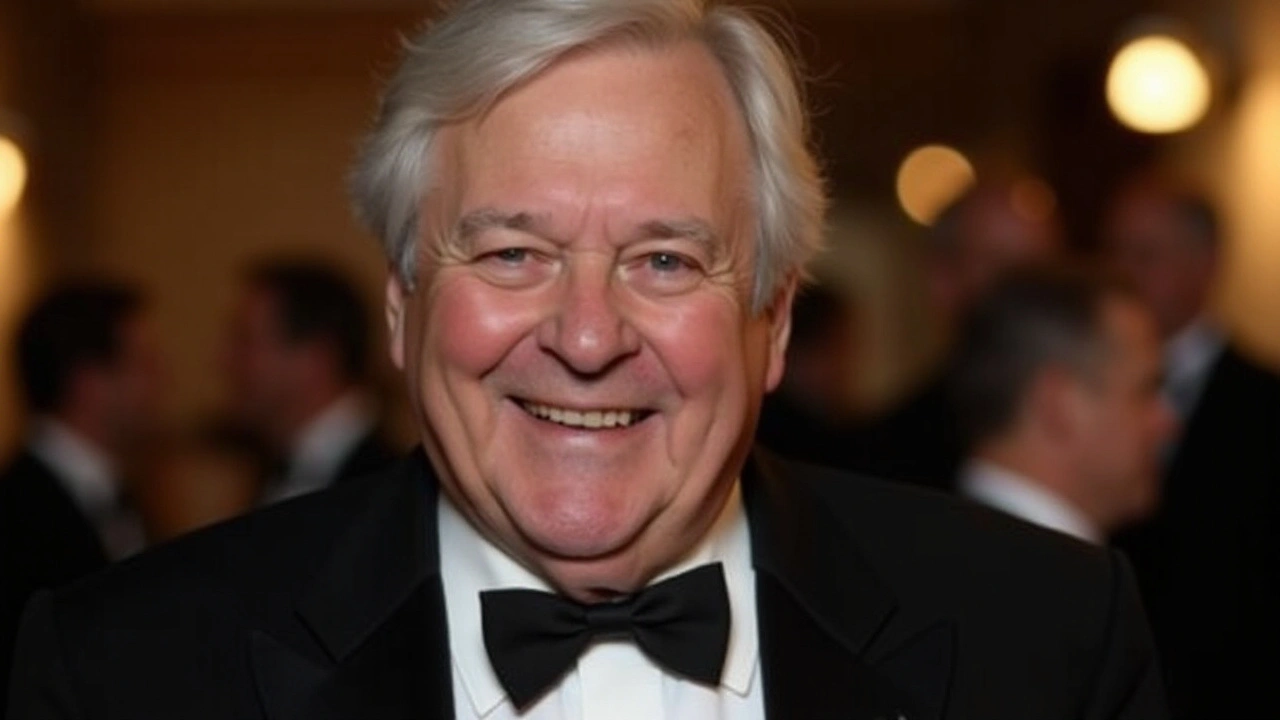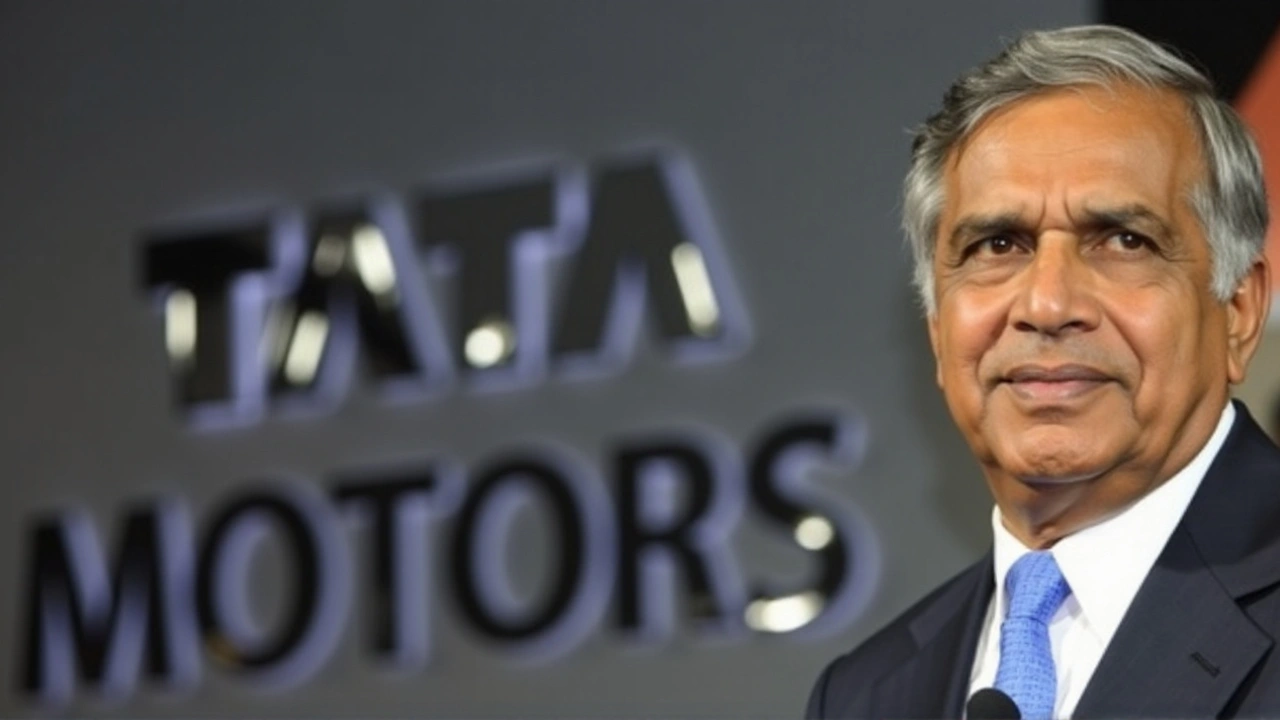The Passing of a Business Legend
The news of Ratan Tata's passing at the age of 86 has resonated deeply with many across the globe. His death comes as a significant loss to the business community and beyond. Tata was not merely a businessman; he was a transformative leader whose impact extended well beyond the boardroom. Under his stewardship, the Tata Group evolved from a national entity into a bona fide global entity. His demise marks the end of an era for both his company and for countless individuals who were inspired by his leadership and vision.
Ratan Tata was born into a privileged Parsi family in 1937, a lineage that is deeply intertwined with India's post-independence economic growth narrative. His journey was rooted in a strong educational background, having studied architecture and structural engineering at Cornell University. This academic stint abroad expanded his worldview, allowing him to bring fresh insight and innovation into his future roles. The foundation of his career was laid when he enrolled as an assistant with Tata Industries in 1962. The early years saw Tata getting hands-on experience at a plant in Jamshedpur, setting the stage for his eventual rise to the apex of the business.
A Business Journey Like No Other
When Ratan Tata took over as chairman of Tata Sons in 1991, he had a vision: to elevate the Tata Group onto the global stage. During his tenure, he orchestrated some of the most significant acquisitions that would shape the group's future. Notable deals included the purchase of the Anglo-Dutch steelmaker Corus, British automotive icons Jaguar and Land Rover, and tea giant Tetley. These moves were not just about expanding business operations; they were strategic decisions that positioned Tata Group as a key player in the international market. Such expansions reflected Tata's aggressive yet calculated approach to scaling the family business.
His leadership style earned him accolades and respect from peers and industry watchers. In 2011, The Economist fittingly described him as a 'titan,' underscoring his role in transforming the Tata Group into a 'global powerhouse.' Despite personally holding a small share within the expansive Tata empire, Tata wielded immense influence due to his strategic vision and commitment to ethical governance. Such is the legacy of a leader who was not only concerned with financial profit but also with creating meaningful and enduring impact.
A Legacy of Innovation and Integrity
The world of Ratan Tata extended beyond the confines of business deals and expansion strategies. His leadership narrative is adorned with personal passions and endeavors that spanned diverse spheres. An avowed automobile and aviation enthusiast, Tata's fascination with fast cars and airplanes was well documented. This affinity began at a young age and continued to bring joy to him throughout his life. Remarkably, he was also a licensed pilot who sometimes took the helm of the company plane—a feat not commonly observed among corporate moguls.
Within the daily grind of business operations, Tata found solace and happiness in his love for animals, particularly dogs. This affinity was a constant throughout his life, bringing him immense joy. In interviews, he often spoke of the emotional depth of these connections. Meanwhile, his stint as a scuba diving enthusiast, though curtailed by age, pointed to a zest for life beyond the corporate sphere.
Philanthropy and Leadership Beyond the Boardroom
Tata's work in philanthropy stands as a sterling testament to his commitment to societal progress. Approximately two-thirds of the share capital of Tata Sons, the Group's holding entity, is channeled through philanthropic trusts. This alignment showcases Tata's dedication to enhancing the quality of life for underprivileged communities across India. His significant contributions earned him the Padma Vibhushan, India's second-highest civilian award, in 2008, acknowledging his distinguished service in trade and industry.
Outside his commitments to Tata Group, Tata embarked on a journey as an investor in Indian startups. He provided support to transformational firms such as Paytm, Ola Electric, and Urban Company, further illustrating his belief in innovation and progress. This investment route lent itself to amplifying his influence beyond traditional business frameworks, as these new-age entities thrived under his patronage.

Ratan Tata's Influence and Enduring Legacy
Ratan Tata's legacy is cemented in the annals of Indian and global business history. His leadership was characterized by vision, resilience, and a relentless pursuit of excellence. The narratives surrounding Tata are anecdotes of compassion interwoven with bold and trailblazing business moves—a hallmark that remains etched in the memories of those who encountered him. From the strategic buyer of marquee international brands to the understated investor in pioneering startups, Tata leaves behind a mosaic of unparalleled impact.
Those who worked alongside or observed Tata closely continue to reflect on his contributions with admiration. Current Tata Sons Chairman, Natarajan Chandrasekaran, summed up the sentiments of many, recognizing him as an 'uncommon leader' whose legacy promises to inspire generations. Indian Prime Minister Narendra Modi also paid homage to Tata's multifaceted persona, illustrating the depth of respect he garnered across different spectra of society. As we celebrate Ratan Tata's life and accomplishments, it becomes apparent that his visionary spirit has etched an indelible mark on the world's business landscape, inspiring both contemporaneous leaders and future champions in the industry.


Jasmine Hinds
Ratan Tata was a legend and his story still inspires us today! 🚀💥 The way he turned a family business into a global powerhouse is just insane! 🙌🏽
Madison Neal
Absolutely, his strategic acquisitions such as Jaguar Land Rover and Corus were paradigm-shifting moves that exemplify synergistic integration in a multinational conglomerate framework. His stewardship undeniably cultivated a robust ecosystem of cross‑border operational excellence.
John Crulz
He also showed how a leader can stay grounded while steering massive change; his humility in taking the pilot seat on the company plane speaks volumes about his hands‑on approach.
Anita Drake
That humility really resonated across cultures, reminding us that leadership isn’t just about boardrooms but also about authentic human connection, whether it’s with a dog or a teammate.
Eduardo Lopez
The moral compass he set for the Tata Group is a benchmark for corporate ethics; in an era of profit‑first mentalities, his commitment to philanthropy shines as a beacon of responsibility.
Nancy Perez de Lezama
While his deeds were noteworthy, let’s not ignore the occasional corporate missteps that fell under the radar during his tenure.
Matt Heitz
Ratan Tata’s dedication to Indian industry was unparalleled; he championed national interests by bringing global standards home, a move that undeniably boosted our economic sovereignty.
Susan Mark
For anyone looking to understand his impact, I’d recommend checking out the case studies on Tata’s acquisition strategy; they outline clear frameworks that can be applied across sectors.
Jason Jennings
The way he pushed forward Indian brands globally was just great for our nation, showing that we can compete on the world stage.
Diego Vargas
Honestly its clear that his leadership set a precedent that most CEOs cant even approach, the deals he made were WAY ahead of their time.
Alex Lee
He was a great leader.
Vida Yamini
Ratan Tata's journey is a masterclass in visionary leadership and ethical stewardship; each chapter of his life reflects a deliberate choice to prioritize long‑term value over short‑term gain; his early years at the Jamshedpur plant grounded him in operational realities that later informed his strategic expansions; the bold acquisitions of Corus, Jaguar Land Rover, and Tetley were not merely financial transactions but strategic integrations that diversified the group's portfolio; by entering the automotive and steel sectors, he positioned Tata as a global contender capable of competing with established western firms; his commitment to philanthropy was woven into the very fabric of the Tata conglomerate, channeling two‑thirds of share capital into trusts that fund education, healthcare, and rural development; this model of wealth redistribution set a precedent for corporate social responsibility worldwide; his personal passions for aviation and dogs humanized a titan often viewed through the lens of business metrics; flying the company plane himself demonstrated a hands‑on leadership style rarely seen among CEOs; his love for animals and scuba diving revealed a multidimensional personality that balanced rigor with joy; the startup investments in Paytm, Ola Electric, and Urban Company showcased his foresight into digital transformation, nurturing the next generation of Indian innovators; each of these ventures benefited not only from capital but also from his mentorship and strategic guidance; the awards and recognitions, including the Padma Vibhushan, underscore the national appreciation for his contributions; contemporaries and successors alike cite his ethical compass as the gold standard for governance; his influence extends beyond the corporate world into cultural and societal realms, inspiring countless young professionals to pursue purpose‑driven careers; the tribute from Prime Minister Modi and Tata Group Chairman Chandrasekaran reflect the depth of respect his legacy commands; ultimately, Ratan Tata's life story is a testament to the power of visionary ambition tempered by humility and a steadfast commitment to the greater good.
James Lawyer
The breadth of his contributions, from global acquisitions to philanthropic initiatives, illustrates a comprehensive approach to leadership that remains a valuable case study for scholars and practitioners alike.
Abby Culbertson
His story makes me think about legacy and what truly matters in our careers.